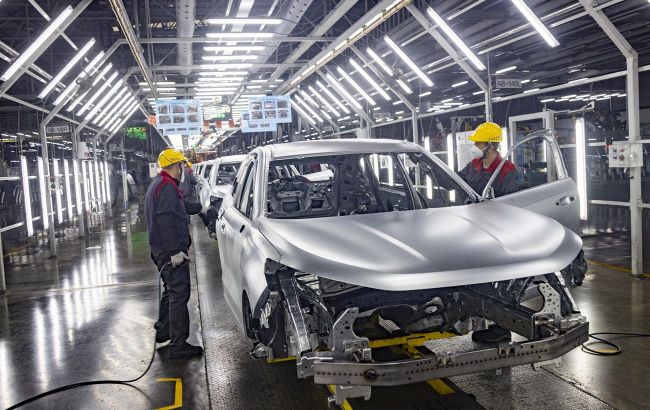Trump promises to delay introduction of tariffs for US automakers by one month
 US automakers are given a delay on import tariffs (Illustrative photo: Getty Images)
US automakers are given a delay on import tariffs (Illustrative photo: Getty Images)
US President Donald Trump plans to suspend tariffs on imports from Canada and Mexico for one month, which came into effect on March 4. He made this decision after meeting with leaders of the so-called "Big Three" automakers, according to a briefing on March 5.
She read Trump’s statement following his meeting with the "Big Three" automakers: Ford, General Motors, and Stellantis, the parent company of Chrysler, Dodge, Jeep, and Ram.
"We spoke with the 'Big Three' auto dealers. We are going to give a one-month exemption on any Autos coming through the USMCA," the president wrote.
The USMCA is the United States-Mexico-Canada Agreement, a free trade deal between the US, Mexico, and Canada that was originally signed in 1994 and extended by Trump during his first term in office.
According to Leavitt, the purpose of the delay is to give American automakers time to shift their supply chains to the US.
"He told them that they should get on it start investing, start moving, shift production here, to the United States of America where they will pay no tariff. That’s the ultimate goal," Leavitt said.
How Trump's tariffs affect the US automotive industry
The introduction of a 25% tariff by the US on all goods imported from Canada and Mexico, along with an additional 10% tariff on Chinese imports starting March 4, will have a significant impact on the automotive industry. Many car parts and components are imported from these countries for car production in the US.
According to a report from the Michigan-based economic consulting firm Anderson Economic Group (AEG), due to retaliatory tariffs imposed by Canada and Mexico, the price of some car models will increase by $12,200. The overall tariffs are likely to cause price hikes across various types of vehicles, including SUVs, small cars, and electric vehicles.
The price increase will affect the automotive market, even though the typical car now costs nearly a record $50,000, and it is expected to add further financial strain on consumers already weary from inflation.
On Wednesday afternoon, shares of American automakers rose: Ford Motor’s stock increased by 47 cents, or 5.1%, to $9.58. GM shares rose by about 7%, and Stellantis by 9.2%.
Additionally, Beijing has announced its intention to fight to the end following the increase in tariffs on Chinese imports to the US from 10% to 20%.

